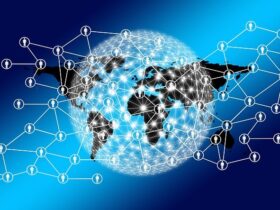Changes that AI brings forth into our world were unimaginable even a decade ago. Artificial intelligence in genetics and biotechnology has to be among the coolest areas where this boom is taking place. Imagine, for example, turning our efforts to study just individual genes to computers that now predict the genetic pattern, solving hourly puzzles taken by scientists for years. Cool, isn’t it?
Let’s dive deep into how artificial intelligence in genetics and biotechnology is revolutionizing these fields, and on the way, let me share a couple of personal experiences that could bring this whole thing to life.
The Basics: What Is AI in Genetics and Biotechnology?
In one nutshell, AI is the prowess of machines to learn to think and make decisions. Artificial intelligence in genetics and biotech is an assistant smart but never tired, analyzing huge amounts of data and finding patterns, hence helping scientists to make some unimaginable discoveries. Applications vary from decoding DNA, studying mutations, and even predicting diseases using AI in genetics, while in biotechnology, applications are found in developing lifesaving drugs, enhancing agriculture, and finding biofuels.
My First Encounter with AI in Genetics
Genetic research: Once, I attended a seminar on genetic research some years ago. One of the speakers spoke about AI applied to the research of hereditary diseases; she showed just how a model of machine learning can sort through terabytes of genetic data in search of one mutation, which causes some kind of rare condition. Impressively, this AI ran at such a pace it did in hours what would have taken months of human labor-mind-blowing.
At that very moment, the thought came to me with full clarity that AI is not only a tool; it is a game changer. The feeling was that I’d been given light in some dark cave, visibility of paths I hadn’t even known existed.
Key Roles of AI in Genetics and Biotechnology
Let’s break down a few of the specifics regarding what AI can provide in these fields.
1. Decoding DNA Faster Than Ever
It went from DNA sequencing being ridiculously slow and awfully costly to analyzing millions of genetic sequences in less than a second today, with the help of AI. Further, AI-driven systems, such as DeepVariant or CRISPR.ai, came into prominence and nearly regularized editing genes and searching for their mutations. The difference is almost that between a flip phone and a contemporary smart cell regularly faster, better, and more efficient.
2. Predictive Genetic Disorders
It makes research through family history and genetic data to estimate the possibility of genetically prone diseases. How it tells you in advance-after all, a couple of years and you can keep yourself protected through necessary precautions, like the weather app that will be able to give you insight into the forecast of your future health.
3. Revolutionizing Drug Discovery
The development of medicine requires years and billions of dollars. AI has now begun speeding up the simulation of how molecules interact, identifying new possible treatments, and even designing drugs anew. Companies such as Insilico Medicine will use AI to predict drug efficacy well in advance of human clinical trials. This will save much time and resources.
4.Personalized Medicine
AI will assist doctors in personalizing treatment according to the genetic blueprint of each patient. Instead of one-size-fits-all treatment, treatments will be as unique as your fingerprint.
5. Improving Agriculture
AI is not all about humans; it’s helping plants out, too. Biotech firms make use of AI in producing genetically modified crops that are able to resist the infestation of pests, require less water, and are even more productive. It is a win-win situation for both the farmer and the environment.
A Personal Anecdote: When AI Predicted the Unpredictable
My good friend took the genetic test last year. She had always been concerned about her family’s medical history regarding diseases of the breasts. A genetic counselor gave profound consideration to her DNA and family history, with the aid of AI-powered machines. In days, they unraveled a BRCA1 gene mutation that terribly enlarged the chances of a threat to her. All this thanks to early detection-the precautionary moves thus taken may have saved her life.
The uncanny details and depth in the analysis performed by the AI-amazingly, not guesses-were pointing out the risk factors. That is how AI is intervening, not just in the labs but in people’s lives.
Ethical Challenges: To Say Whether AI is a Double-Edged Sword?
Of course, it is not all rainbows and butterflies. With great power comes great responsibility. AI in genetics and biotech does raise ethical questions around privacy, data security, and misuse of technology. For example, who would own your genetic data when analyzed? How do we make sure AI doesn’t result in harmful genetic modifications?
These are questions we, as a society, will have to consider if AI is ever going to truly prove to be a force for good.
In conclusion, brilliantly, with respect to genetics and biotech, the future for AI is bright. Take a step further into envisioning a future wherein diseases are diagnosed years before symptoms develop, medicines have become so effective with personalized medicine that nobody dies of unnatural death, and food and energy supplies have become sustainable.



































Leave a Review